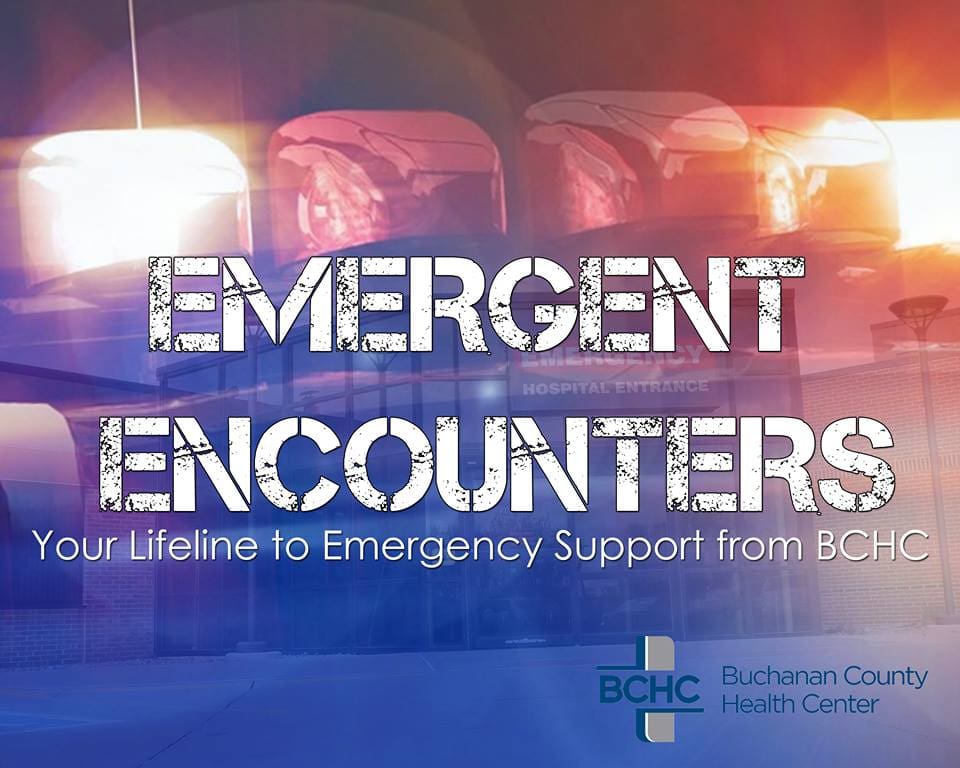
Emergent Encounters: Your Lifeline to Emergency Support from BCHC Common Winter Injuries & Emergencies
Author: Jarod Wiebel, PA-C
C old weather is back again and “Old Man Winter” is blowing in. Although we hate to see nicer weather leave, we can all appreciate the seasons of living in the Midwest. The holidays are upon us to help send out 2016 as we anxiously await all things 2017 will bring. Although this time of year can seem like it carries on and on, you can take extra measures to make sure you aren’t cooped up with these common winter injuries.
old weather is back again and “Old Man Winter” is blowing in. Although we hate to see nicer weather leave, we can all appreciate the seasons of living in the Midwest. The holidays are upon us to help send out 2016 as we anxiously await all things 2017 will bring. Although this time of year can seem like it carries on and on, you can take extra measures to make sure you aren’t cooped up with these common winter injuries.
- We may not be setting up for the Polar Vortex like a few years back, but winter predictions are forecasting heavy snowfall, ice, and freezing temperatures. Certainly these conditions will be a headache for drivers, but this can also affect those spending too much time outdoors. Frostbite can occur in a matter of minutes. Being outdoors in the extreme cold can cause significant soft tissue injuries. Do not ignore the feelings of pain or tingling in your fingers, face, or other exposed skin and extremities while outdoors in the winter. Be sure to keep all exposed skin covered, including the nose and ears. Go inside, warm up, and be aware that it is easier to get frostbite on your second exposure to the cold. Stay bundled up, and don’t forget to keep your children covered, as they may not be able to tell you their concerns.
- Snow removal is an inevitable task that must be done. However, have you ever considered this chore to be a cardiac workout? The average shovel heave will weigh about 35 pounds. When you take into account the size of your driveway, you have yourself a workout. Cardiac arrest and heart attacks are the direct result of several shoveling related events every year. If you are over the age of 55, or have significant medical problems, be sure to consult with your doctor before going out to shovel. This is no different than starting a new exercise regimen. If you have a cardiac history and still must shovel, remember to push the snow, do not lift it. If you have a snow blower, remember to think smart with these machines. They are no different than a lawn mower. Every year, we see several ER visits related to hand injuries from clogged snow blowers. These blades are sharp and turn at a very high rate. Be sure to always cut the power to these motors before reaching in the chute to unclog the snow. Even with gloves on, finger and hand trauma can be devastating to these circumstances.
- Ice buildup is also common and can make for hazardous walkways. It is important to keep your guard up all season long. Even when we have not had snow for a few days, be sure to keep an eye out for slick spots. Snow will often melt during the day and re-freeze at night. Slips and falls can cause serious back strains, broken bones, and head injuries. Walk slowly and do not distract yourself. Keep your cell phone in your pocket, and try to keep your arms free to catch yourself should you encounter trouble. If you feel like you may have injured yourself, be sure to get these aches and pains evaluated to prevent further injury.
- Last but not least, this time of year can be very hard on our mental health. The holidays are often a sad time of year for those who have lost a loved one, and for those who may be faced with serious health complications. Be sure to keep in mind those who are grieving, and be supportive of them as they get through a difficult time of year. People also spend an increased amount of time indoors, and the sun is significantly less abundant. Beat the winter blues by staying active. Exercise can be a great way to increase your mood, and help you burn off those extra calories from all the holiday treats!
All of these warnings certainly do not mean you need to hibernate until spring. However, being aware of the seasonal change and all it may bring can help you with the health hazards of the season. Whatever your seasonal health needs may bring, remember that BCHC’s Emergency Department is here for you with board certified emergency medicine physicians, physician assistants, and nurse practitioners from East Central Iowa Acute Care 24/7. On behalf of the Board Certified Emergency Medicine providers with East Central Iowa Acute Care, along with the staff at Buchanan County Health Center, we you and yours a happy and healthy new year!
East Central Iowa Acute Care is a group of 13 board-certified Emergency Physicians and 11 Allied Health Professionals based out of Cedar Rapids. Currently, ECIA physicians and employees provide care to patients at four hospitals in Eastern Iowa including UnityPoint St. Lukes, Buchanan County Health Center, Grundy County Memorial Hospital, and Jones Regional Medical Center. For more information, please call 319-332-0999 or visit www.bchealth.org.

